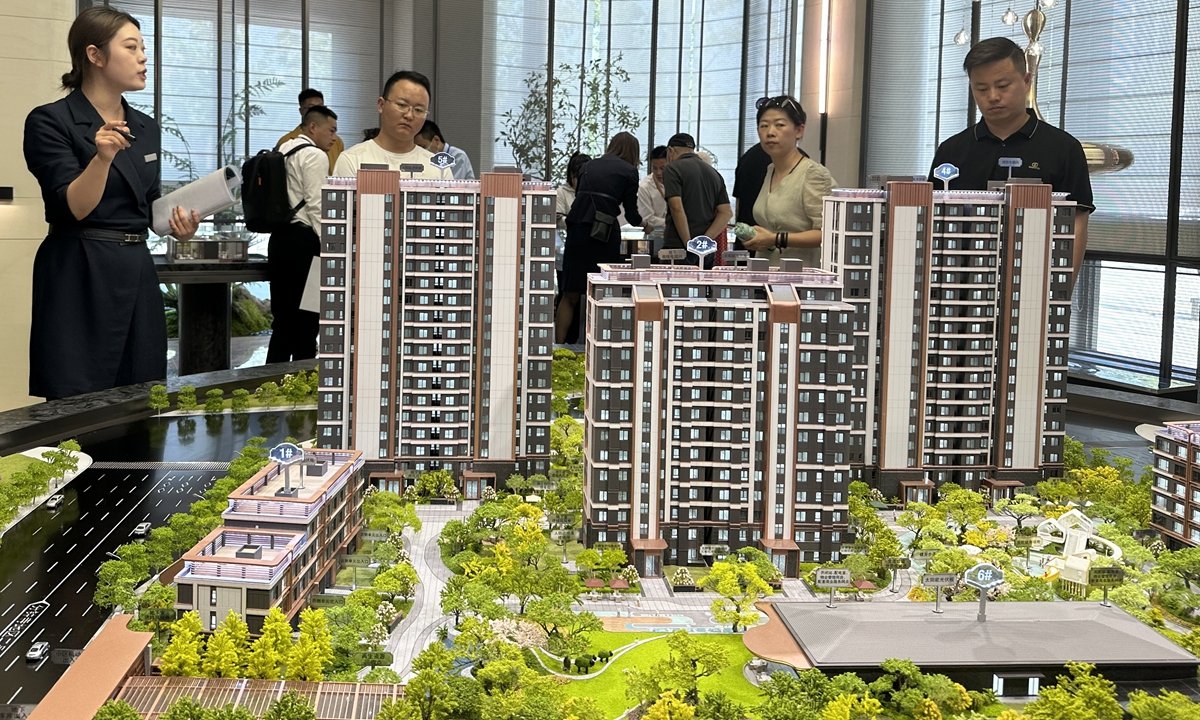Amidst the turbulent waves of the global economic scenario, there is an evident focus of world economies on stabilizing sectors that are pivotal to national development. One such sector, significant to China’s economy, is real estate. Recent policy changes in some of China’s premier cities, Beijing and Shanghai, indicate a clear shift towards propping up this vital sector.
Recent Policy Changes: A Deep Dive
On a quiet Friday, two of China’s most influential cities, Beijing and Shanghai, unveiled decisions aimed at easing mortgage regulations. This wasn’t a standalone move, however. Just two days prior, Guangzhou and Shenzhen, two equally influential cities, made similar announcements. These moves were not only strategic but also indicative of the cities’ intent to ensure stability within the country’s real estate market.
For potential homeowners in Beijing and Shanghai, this policy change offers a glimmer of hope. Under the new directives, irrespective of their past credit history, buyers are eligible for preferential treatment for their first-home purchases. The aim is clear: to inspire confidence and encourage more citizens to invest in the property market.
Interestingly, this trend isn’t just limited to these metropolitan giants. Guangzhou and Shenzhen, positioned in South China’s Guangdong Province, had already laid down a similar path earlier that week. Experts, observing these moves, predict a potential ripple effect. It’s expected that second-tier cities in China might soon adopt congruent regulations.
Yan Yuejin, a reputed research director at Shanghai-based E-house China R&D Institute, offers an insightful observation, noting that first-tier cities often act as trendsetters for the national real estate trajectory. The new changes, he mentions, “send clear signals to the whole market,” a statement he shared with the Global Times.
Further solidifying this trend, Anhui Province, located in East China, too, recently relaxed mortgage measures. The announcement was made via the official WeChat account “Anhuifabu“. This sentiment was mirrored in East China’s Jiangsu Province, specifically in Suzhou, and in South China’s Guangxi Zhuang Autonomous Region’s Nanning. Both cities announced their intention to adopt easing mortgage regulations.
The Expected Impact: Short Term and Long Term
These policies, although new, have an undeniable objective: to make home buying affordable, thereby stimulating demand. Yan believes the effects of these policies will manifest quickly, possibly as early as September and October. These months traditionally witness a surge in real estate transactions.
The broader implication of these policy shifts isn’t lost on experts. Song Ding, a research fellow from the China Development Institute, views this as a beacon of hope for the real estate sector that has recently been underperforming. Speaking to the Global Times, Ding remarked that these initiatives “encourage sustainable growth across the current sluggish real estate market.”
China’s Property Market: A Broader Perspective
China has, for a while now, consistently advocated for policies to rejuvenate its property market. These efforts were further bolstered when the country’s premier financial regulator revealed plans on a Thursday. The regulator’s notice aimed at reducing down payments for both first-time and subsequent home purchases. Additionally, there was a move towards slashing interest rates on pre-existing mortgages.
This decision was backed by authoritative bodies, the People’s Bank of China and the National Administration for Financial Regulation. The notice highlighted key figures: a 20% minimum down payment for first-time buyers and a 30% requirement for those buying a second time.
The Current Real Estate Scenario: Challenges and Solutions
The challenges faced by the real estate sector are intricate. The aftershocks of COVID-19, unforeseen external influences, and issues from China’s rapid economic expansion in recent years have all played a part. Song adds perspective to this by stating that the real estate sector’s hurdles are a mix of these multifaceted issues.
However, there’s a silver lining. Song is optimistic that as more supporting policies take effect, there will be a noticeable stabilization in market expectations and consumer confidence. This will not just uplift the real estate sector but also reinforce positivity in China’s broader economic spectrum.
Conclusion
China’s recent moves in its real estate sector paint a picture of a nation ready to adapt, innovate, and stabilize. While challenges are inherent in any rapidly growing economy, the agility and foresight of policy changes, as seen in China, reflect a country’s commitment to ensuring growth, stability, and prosperity for its citizens and the economy at large.
Read More:
